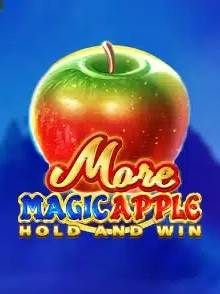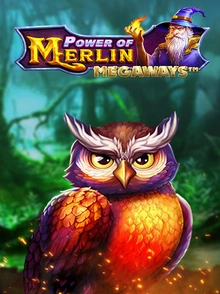15,000 USD Welcome Bonus
Claim It NOW

Razed – Your Guide to the Best Australian Casino
In March 2024, a new platform was introduced into the Australian online gaming sector, and it is quickly gaining popularity. This site has become very popular among Australian online gaming gamblers who are looking for fun and big wins.
Razed casino is not your average online casino; it offers much more than a simple gambling experience. It has everything that a gambler would want, including live dealer games that will make your heart race, as well as a wide range of betting options from traditional football to emerging e-sports trends.
The company is unique because it focuses on cryptocurrencies and embraces the future of digital transactions. With this kind of thinking and having a licence from Curacao, it makes Razed a safe but forward-looking option for Australian players looking to enhance their online gambling experience in Australia.
Enter into a realm of state-of-the-art gaming that offers high bonuses and casino offers meant for the careful Australian player. Razed casino is not your average online casino; it is a virtual entertainment revolution that has provided a thrilling experience to both experienced gamblers and amateurs who are just starting out in gambling.
All About Razed Casino
| Feature | Details |
|---|---|
| Website | razed.com |
| License | Government of Anjouan, Comoros (No. ALSI-132405034-FI3) |
| Welcome Bonus | AU$7,500 package |
| Games | 1774 pokies, table games, live casino |
| Providers | BetSoft, Wazdan, Pragmatic Play, 23+ others |
| Currencies | EUR, USD, CAD, NZD, IDR, JPY |
| Founded | March 2024 |
The online casino is very lively, and it has been designed with a purple colour, which makes it very attractive. It also has a mascot of a strong bull. It is a new platform that has various forms of entertainment for Australian betters.
Razed provides an all-around gambling experience, from exciting pokies to captivating table games. Through its Comoros licence and focus on cryptocurrencies, the casino ensures a safe and progressive environment for its Australian client base. Razed is ideal for contemporary gamers who want state-of-the-art virtual thrills because it has a mobile version and is mobile-optimised and has many games that are protected.
What Makes Razed Different
The combination of a bull mascot and a smooth purple interface in this crypto-centred iGaming hub provides for total immersion of players. It has something for every kind of slot lover with its 1774 Razed pokies. By using cryptocurrencies, the site stays ahead of other online casinos that still rely on standard digital money systems.
Razed is full of different games thanks to top developers such as BetSoft, Pragmatic Play, and many other expert developers. For Australian punters, they have got it all; a wide variety of options for betting on both eSports and regular sports are available through their extensive sportsbook.
On the other hand, Royal Reels, as a proudly Australian brand, focuses on delivering a more localized and trustworthy experience, complete with AUD payments and tailored bonuses. While Razed pushes the crypto frontier, Royal Reels offers stability and familiarity — values many Aussie punters still prefer.
Licensing Overview
The website for slots with a futuristic theme is licensed under Licence No. ALSI-132405034-FI3, given out by the Government of the Autonomous Island of Anjouan, Union of Comoros. With this permission, Razed online can provide its many different types of casino games and pokies to players around the world, who may include Australian punters.
The casino follows global gaming standards, so players can trust and enjoy what it has to offer. This creates trust among virtual entertainment fans because the system is very keen on following the law. Even though they have not revealed much about their license application, we can tell from their new entry into the online gambling sector that they are taking a fresh look at regulatory compliance in line with current industry norms and customer preferences.
How to Start Playing Instantly
Begin your adventure playing at Razed with these steps:
- Visit the Razed website and click "Sign Up"
- Enter your details and a valid email
- Create a unique password
- Verify your email to activate your account
- Log in and navigate to the cashier
- Select your preferred payment method
- Enter your deposit amount, considering any bonus requirements
- Confirm the transaction
Explore the exciting pokies, engaging table games, and interesting live dealer games at Razed using the money in your account. It is important to gamble responsibly if you want to have fun while playing. For Australian players, Razed has different payment options such as cryptocurrencies and PayID.
Razed Sign-Up Process in Detail
Getting into the exciting online gaming platform of Razed is easy. Just follow these steps:
- Visit the Razed website and click "Registration"
- Enter a valid email address
- Create a secure password
- Verify your email to activate your account
- Log in and explore the platform
- Head to the cashier for your first deposit
- Choose from various payment methods, including cryptocurrency
- Start playing your favorite pokies and casino games
Account Verification – Do You Need It?
Account verification is not compulsory for every player at Razed. Nonetheless, the platform may require proof of identity under some circumstances. It usually entails sending papers such as national IDs and utility bills. Verification at Razed could be started by a significant withdrawal, suspicious activities, or when there is a need to follow requirements.
Although it is not a must, verification may quicken later withdrawals and improve the safety of one’s account. This can be done by players themselves in their account settings before they are asked to do so. Verification questions are dealt with by Razed’s support team.
Razed Login – How To?
It is easy for people who have ever played online games and those who are just starting to do so to sign up and access their Razed accounts. To begin playing, go to the website, click on "Login", type in your email and password, and then press "Submit".
After logging in, you will arrive at the lobby page where you can start exploring Razed's wide range of pokies, as well as table games and exciting live dealer games. It is optimised for mobile browsers, enhancing the mobile browser experience so that users can access it on their phones and tablets without downloading any applications.
It is easy to manage your bankroll since there are different ways through which you can make payments. For Australians who want some fun at the safest online casino in Australia, Razed has made it very easy to log in and start playing games that they love because of its many different options available but also user-friendly ones too!
Razed Bonuses
The welcome bonus stands out: This top-tier slots venue amplifies the thrill of online gaming with enticing welcome bonuses.
| Deposit | Bonus | Wagering |
|---|---|---|
| First | 150% up to 3000 USDT | 40x |
| Second | 175% up to 3500 USDT | 40x |
| Third | 200% up to 4000 USDT | 40x |
High-rollers and crypto enthusiasts find this design attractive. The offers are made better by the huge percentage given on first deposits, although they have been designed to target low deposit players. It is important for players to be aware that they will be required to wager their bonuses at least forty times.
Welcome Offer Details
Australian players are attracted to the three-level bonus system of this exclusive casino through its generous daily deposit match welcome package. By creating an account and depositing money for the first three times, you will receive 150%, 175%, and 200% bonuses, which are worth up to 10,500 USDT in total.
If you want to get the most out of your bonuses, play only pokies since they contribute fully towards the wagering requirement. Other types of games like table games and video poker have a lower contribution. Take note of the 30-day expiry period and ensure that you bet within the specified limits to meet the wagering requirements so that you can take full advantage of this great head start offer.
Daily Deals Recap
The promotion offers of this particular slot gaming platform are not as many as indicated. It is said in the knowledge base that the gambling house has specialised on the welcome package for new players. The described package covers three initial deposits with exclusive bonuses for casino play only.
A VIP program is available for verified depositors at the casino. This program may have different levels with advantages like no-cost spins and quicker cash-outs. It also talks about a referral program, but there is no information about it. Gamers need to know that there could be unclear information on certain bonuses, which underscores the significance of closely examining the terms of any bonus offers available at Razed.
VIP Club Introduction
Dedicated players can benefit from the tiered advantages available in the VIP program of this unique website. The structure rewards increased wagering with exclusive perks:
| Level | Wagering Requirement | Potential Rewards |
|---|---|---|
| Entry | 10,000 USDT | Rakeback, reload bonuses |
| Elite | 500+ million USDT | VIP host, rank-up bonuses |
| Pinnacle | 1+ billion USDT | Luxury items, personalized offers |
Although the exact rewards offered may differ, the package consists of rakebacks, bonuses, as well as unique products. It is possible for people who spend a lot of money to get sports cars or diamond watches. If you want to know what VIP offers are available now, please get in touch with our customer service department.
Payment Methods Supported
There is a wide range of payment methods available at this top online casino for Australian players, which can be used in the form of cryptocurrencies or through the standard ways. As soon as you make a deposit, you will gain access to numerous interesting pokies as well as table games because they are all processed instantly.
The banking options provided by Razed are suitable for everyone, including casual punters and experienced gamblers. Razed Casino ensures swift, secure transactions, enhancing your online gaming experience. Whether using digital currencies or traditional forms of money, players can have ease of mind and comfort while making their deposits or cashouts.
Depositing on Razed
Players from Australia can make smooth deposits using different types of digital cash that are very fast and safe on this top-notch interactive gaming platform, earning rewards along the way. Although gamers will be able to deposit funds immediately, they should remember the least amounts so as not to lose money.
| Payment Option | Fee | Min. Deposit | Processing Time |
|---|---|---|---|
| Bitcoin (BTC) | Free | 0.00002 BTC | Instant |
| Ethereum (ETH) | Free | 0.0004 ETH | Instant |
| Litecoin (LTC) | Free | 0.015 LTC | Instant |
| Tether (USDT) | Free | 5 USDT | Instant |
The focus of Razed on crypto is in line with the current trends of online gambling, which provide increased transaction speeds and better confidentiality. Keep in mind that sensible gambling commences with good bankroll management. It is easy for players to monitor the money they deposit or withdraw by looking at their account dashboard.
Withdrawing Funds from Razed
Razed gives importance to safe withdrawal options for its Australian clientele. It provides crypto cash-outs that are in line with the latest trends in secure internet betting for Australians. There are different choices such as:
| Withdrawal Option | Commission & Limits | Processing Time |
|---|---|---|
| Bitcoin (BTC) | No fees, 0.001 BTC min | 1-3 business days |
| Ethereum (ETH) | No fees, 0.01 ETH min | 1-3 business days |
| Tether (USDT) | No fees, 20 USDT min | 1-3 business days |
For them to be able to cash out, players have to bet at least the amount they deposited. To guarantee a safe atmosphere, identification may be required by Razed for significant cash-outs. Quick processing is a privilege of VIP members.
Mobile Gaming & Razed App
Razed provides a smooth mobile gaming experience even without a dedicated app. It doesn’t matter whether you are using a smartphone or tablet, the responsive website will give you clear images and an easy time playing different games. Players can bet on anything, from pokies to video poker, when they are on the move.
Easy navigation and quick access to favourite games are guaranteed by the user-friendly interface on all screen sizes. All features of accounts, such as banking and support, can be controlled by mobile users. You don’t have to download anything because of the instant play feature – just log in and start playing.
Game Types and Features
An impressive range of online entertainment is available in this Crypto-focused online entertainment hub. It doesn’t matter if you like blackjack, roulette or have a thing for some slots because there is something for everyone in the casino. The virtual lobby has state-of-the-art graphics that make one feel as if he/she is part of the game and not just playing it.
During their sessions, players can enjoy free chips and free spins on chosen pokies. It is easy to move around different game types due to the fact that they have used a very simple interface; this also helps improve upon an already enjoyable activity known as gaming.
Best Online Pokies to Try
The online pokies collection by Razed has a variety of titles. Here are some games that you should check out:
- Wolf Treasure: IGTech's desert adventure with silvery wolves and 5,000x max win
- Sugar Rush 10000: Sweet treats and massive win potential
- Wanted Dead or a Wild: Western-themed thrills
- Gates of Olympus: Pragmatic Play's godly quest
- Book of Dead: Rich Wilde's Egyptian expedition
- Big Bass Bonanza: Reel in catches with expanding wilds
- Diamond Fiesta: RTG's colorful Day of the Dead celebration
- Starburst: NetEnt's cosmic classic with 96% RTP
- The True Sheriff: Betsoft's 3D Western showdown
- Cleopatra: IGT's timeless Egyptian adventure
Top Game Providers
A great gaming experience is guaranteed on this science fiction casino through its partnership with top secure software providers. This collaboration with leading developers is a key factor for many gamers, who also explore platforms like Rainbet to access exclusive titles or a different mix of software providers. The most popular games at Razed, such as blackjack and roulette, are all available in different versions from key players who specialise in creating stunning slots and tables. Some well-known expert developers and the games they are famous for include:
| Provider | Popular Slots | Features |
|---|---|---|
| Pragmatic Play | Wolf Gold, Gates of Olympus | High volatility, cascading reels |
| BetSoft | Sugar Pop, The Slotfather | 3D graphics, interactive bonus rounds |
| Wazdan | 9 Lions, Magic Stars 3 | Adjustable volatility, unique gamble feature |
| NetEnt | Starburst, Gonzo's Quest | Innovative mechanics, frequent jackpots |
The famous game creators are known for making games that can be played by all kinds of people, including those who like simple, classic games, as well as those who prefer the most advanced video slots, which offer many chances at winning a lot of money.
Terms and Player Policies
Razed casino provides some important rules that should be followed by players. It highlights the need for responsible gambling in Australia and also a very strict age verification policy. Bonus terms require adherence to wagering requirements. It is not allowed to have several accounts, and playing for money should involve providing true information about one’s identity.
Razed ensures that there is no cheating or manipulation of software in fair gaming. Rules on how withdrawals are made include the time it takes for processing and when customers might need to provide identification documents. The casino can shut down any account that breaks its rules.
Players are required to communicate any bugs immediately. There are various addiction resources which encourage safe gambling. Reward programmes come with their own set of conditions. One must follow the rules of the game while planning his/her strategies. These reward-related laws pertain only to gambling in Australia, and they make sure that all local punters follow the law.
Security Measures at Razed Casino
Razed gives priority to the safety of its players through various ways, including the use of secure codes. When making transactions, advanced encryption is used to protect both personal and financial information. Unauthorised access is blocked by firewalls as well as intrusion detection systems. There are routine security audits to guarantee conformity with the law.
The company keeps real money accounts separate from its working capital. Razed thoroughly examines software providers it partners with. Player protection is further enhanced through responsible gaming tools for gambling in Australia, like self-exclusion options. The fact that they have put in place addiction prevention resources and allow for adjustment of betting limits indicates their concern about the user's welfare.
How to Get Support
Razed provides live chat and email support together with bonus codes. Look at the FAQ first for instant answers. When you reach out, remember to give all relevant details, including bonus codes. The team targets solving problems fast through unique codes so that clients have a great time on the casino site and stay safe from gamblers in Australia.
Gambling Help & Awareness Tools
The hub for the jackpot games, which are top quality and secure, gives priority to responsible gambling through various player protections. It has self-exclusion features, limits on deposits, as well as reality check tools, all aimed at promoting favourable gaming behaviours.
Pros vs Cons
| Pros | Cons |
|---|---|
| Massive welcome bonus of AU$7,500 attracts new players | Customer support details are not fully disclosed |
| Extensive game library with 1774 pokies and live dealer games | Relatively new platform (launched in March 2024), so reputation is still building |
| Crypto-friendly with a modern approach to digital transactions | Licensed in Comoros, which may raise concerns for some players compared to stricter jurisdictions |
| Mobile-optimized and visually appealing interface with a unique bull mascot | Lack of dedicated mobile app may limit accessibility for some users |
| Diverse betting options including pokies, table games, live casino, and sportsbook (eSports & footy) | Does not accept AUD directly, which may require currency conversion |
FAQ
What bonuses does Razed offer to existing players?
At the moment, Razed focuses primarily on its welcome bonus for new players. While there are no ongoing bonuses or no-deposit offers for current players, it's worth checking the site regularly for future promotions and loyalty rewards.
How long does it take to withdraw funds from Razed?
Razed processes cryptocurrency withdrawals within 1-3 business days. VIP members may enjoy faster payouts. Processing times depend on your chosen payment method and account verification status. Always check the latest withdrawal policies for accurate timelines.
Can I play Razed Casino games on my mobile device?
Yes, Razed offers a fully optimized mobile experience. There’s no need to download an app—just visit the mobile site through your device’s browser and enjoy a wide selection of slots and table games anytime, anywhere.
What payment methods are available for Australian players at Razed?
Razed Casino supports cryptocurrency payments for Australian players, including Bitcoin, Ethereum, Litecoin, and Tether. These options provide fast, secure transactions and added privacy for all players.











